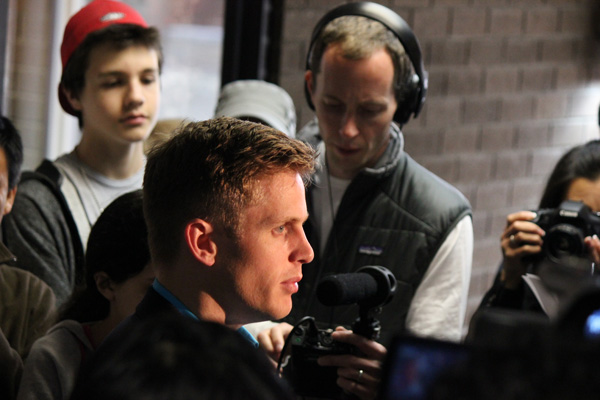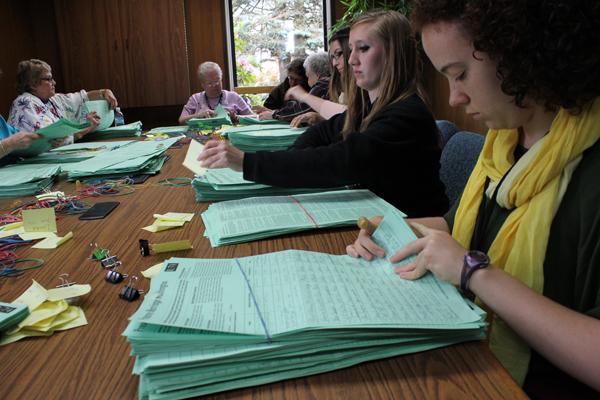WA gay-marriage foes virtually assured of making fall ballot
UPDATE with additional signatures submitted:
Preserve Marriage Washington, opponents of Washington’s new law authorizing civil marriage for same-sex couples, have submitted an estimated 242,000 petition signatures, virtually assuring a public vote this fall on whether to uphold or overturn the marriage measure, Senate Bill 6239. The action blocked the law from taking effect on Thursday.
Sponsors submitted about 232,000 signatures Wednesday morning, the final day to submit petitions for a referendum. They brought in roughly 10,000 more later in the day. The total is twice the bare number of voter signatures needed to make the ballot, and apparently a record for a referendum. (R-48, a land-use measure rejected in 1995, qualified for the ballot with 231k signatures.)
Sponsors estimated that all but about 25,000 signatures were gathered by volunteers and churches; the last increment were gathered by paid crews.
The sponsors of R-74 now will be campaigning for voters to turn down the recently passed marriage law. Supporters of “marriage equality” will be campaigning for an affirmative vote. The question for voters will be whether to approve the same-sex marriage legislation or to reject it.
Absent the R-74 challenge, the marriage law would have gone into effect on Thursday. Assuming the signature verification check turns up at least 120,577 valid voter signatures, R-74 will be on the Nov. 6 ballot, and the law will be on hold until the voters speak, and until the election is certified on Dec. 6.
After sponsor Joseph Backholm (above) held a news conference, he submitted boxloads of signatures and crews (below) at the state Elections Division counted and numbered 16,723 petition sheets. Including the last batch of signatures, 17,742 petition sheets were submitted total. The petitions were then sent to the State Archives for imaging and safe-keeping.
The actual check is expected to begin Sunday afternoon and take about three days, said state Election Co-Directors Shane Hamlin and Katie Blinn. Because of the large number of signatures submitted, the checkers will be using a 3 percent random sample to check that the signer is a registered Washington voter and that the signature matches the one on file for the voter. The state has a regularly updated database that includes registration information on all 3.7 million voters.
The crew will be using 14 computer stations. Three experienced Elections Division staffers will be floor supervisors and experienced checkers will serve as “master checkers” to deal with any questions or further check of rejected signatures.
In 2009, Washington voters upheld R-71, the “everything but marriage law” for registered domestic partners, including gays and lesbians, by a 53-47 percent margin. The R-74 vote would either make Washington the first state with a voter-approved gay-marriage law or the latest in a large number of states that have outlawed it, either in statute or in their state constitutions.
According to the Public Disclosure Commission, Preserve Marriage Washington has raised about $43,000, spending most of it on the signature-gathering phase. The group seeking voter approval of same-sex civil marriage rights, Washington United for Marriage, has collected over $714,000 so far. Both sides predict heavy spending and national attention this fall. At least three other states are expected to vote on the issue – Maryland, Maine and Minnesota. At the moment, eight states authorize gay marriage. A California case is on the way to the Supreme Court.
Washington will vote on at least three other ballot measures—Initiative to the Legislature 502, decriminalizing marijuana, and two non-controversial constitutional amendments dealing with investments and reducing bond debt. Several initiatives to the people are circulating, and have a July 6 turn-in deadline. These include Tim Eyman’s initiative (I-1185), reinstating a supermajority for tax measures approved in Olympia, and a proposal (I-1192) to re-institute the definition of marriage as the union of one man and one woman.

